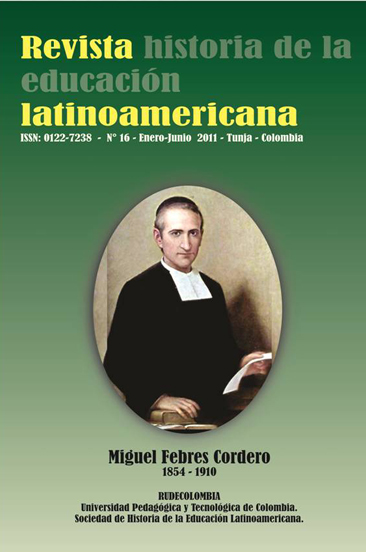THE GENEALOGY OF THE SCHOOL REGULATIONS IN MEXICO: ANALYSIS OF THE WORK GIVES BY RAFAEL RAMÍREZ

Abstract
This work is a result of an analysis and the main question what is the genealogy of the regulations in the schools of primary education in Mexico? This aims at analyzing the work of Rafael Ramirez, across the formative literature of the teachers, considered as a crucial element of the institutional regulations of the primary school, since it generates a speech that the normativity institutes in the basic Mexican school. The used method is the critical analysis of the speech of Van Dijk, the acts of Searle's speeches and the perspective of the metaphors of Layoff’s daily life. The hypothesis that orientates the investigation raises that the first steps of the institutionalization of the school control were crossed by the Christian - Catholic speech expressed in diverse inter-speeches of that epoch and fundamentally in the school regulations that began to appear as part of the formative literature of the teachers of primary schools. The above mentioned analysis allows to conclude that this literature reflects great report of the imaginary one, the teachers of public schools, since expresses a nationalism based on the imaginary one of the nuclear Christian family, key element that it formed one of the most alive images in the conformation of the Mexican state after the revolution.
Keywords
Journal of Latin American Education History regulation, regulations, discourse, pastoral power, Christian family, nationalism.